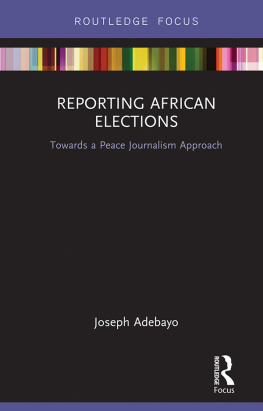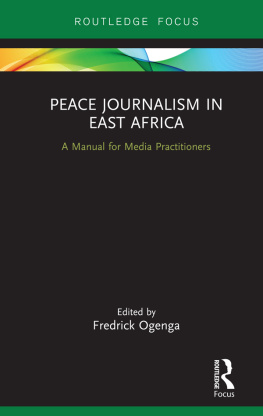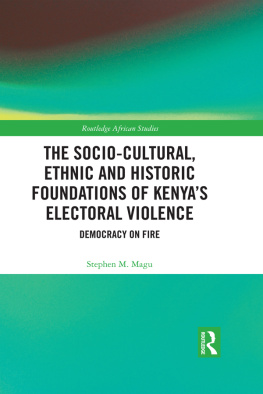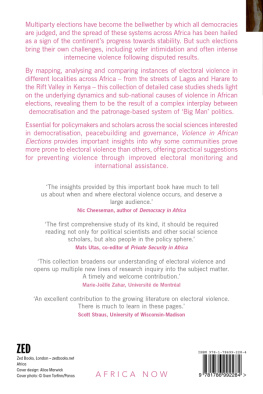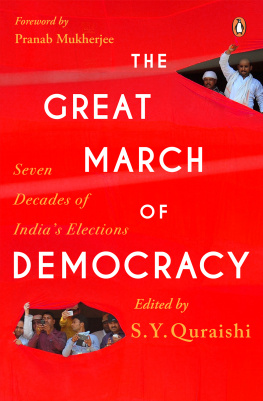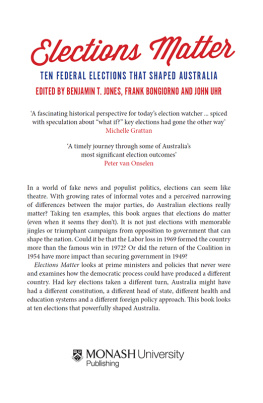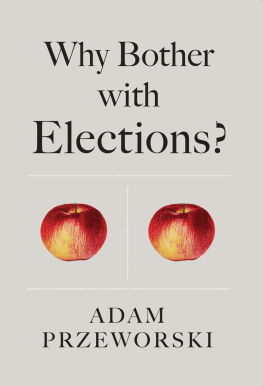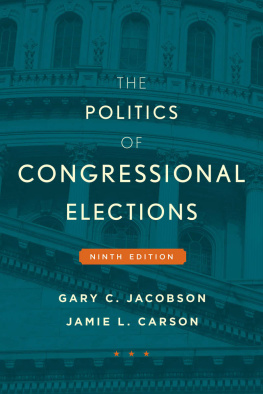Reporting African Elections
The ability to be divided along ethnic and religious lines is inherent to much of Africas media. Such potentially divisive reporting has the ability to incite violence through prejudiced information, particularly during election processes.
Reporting African Elections examines the impact of media messages on society, focusing on these electoral processes in Africa. Drawing upon the Peace Journalism approach to political reporting, this book offers a unifying conceptual framework for analysing the role journalists play in ensuring peaceful elections. Joseph Adebayo also looks at the impact training can have on election reportage, studying recent elections in Kenya and Nigeria in order to present a 17-point plan for reporting elections in Africa.
Reporting African Elections will be of interest to scholars and students of journalism, peace and conflict studies, and politics.
Joseph Adebayo is a postdoctoral researcher at the University of Cape Town. He holds a PhD in Public Administration (specialising in peacebuilding) from the Durban University of Technology.
Routledge African Studies
24 Africa in Black Liberal Activism
Malcolm X, Stokely Carmichael and Walter Rodney
Tunde Adeleke
25 Global Africans
Race, Ethnicity and Shifting Identities
Edited by Toyin Falola and Cacee Hoyer
26 The Socio-Cultural, Ethnic and Historic Foundations of Kenyas Electoral Violence
Democracy on Fire
Stephen M. Magu
27 African Philosophy and the Marginalization of Women
Edited by Jonathan O. Chimakonam and Louise du Toit
28 African Philosophical Currents
John Murungi
29 Gender and Human Development in Africa
Edited by Akinloy j, Ibigbolade S. Aderibigbe, and Felisters Jepchirchir Kiprono
30 Reporting African Elections
Towards a Peace Journalism Approach
Joseph Adebayo
For a full list of available titles, please visit: https://www.routledge.com/African-Studies/book-series/AFRSTUD
Reporting African Elections
Towards a Peace Journalism Approach
Joseph Adebayo
First published 2019
by Routledge
2 Park Square, Milton Park, Abingdon, Oxon OX14 4RN
and by Routledge
52 Vanderbilt Avenue, New York, NY 10017
Routledge is an imprint of the Taylor & Francis Group, an informa business
2019 Joseph Adebayo
The right of Joseph Adebayo to be identified as author of this work has been asserted by him in accordance with sections 77 and 78 of the Copyright, Designs and Patents Act 1988.
All rights reserved. No part of this book may be reprinted or reproduced or utilised in any form or by any electronic, mechanical, or other means, now known or hereafter invented, including photocopying and recording, or in any information storage or retrieval system, without permission in writing from the publishers.
Trademark notice: Product or corporate names may be trademarks or registered trademarks, and are used only for identification and explanation without intent to infringe.
British Library Cataloguing-in-Publication Data
A catalogue record for this book is available from the British Library
Library of Congress Cataloging-in-Publication Data
Names: Adebayo, Joseph, author.
Title: Reporting African elections: towards a peace journalism approach/Joseph Adebayo.
Description: New York, NY: Routledge, 2019. |
Series: Routledge African studies; 30 |
Includes bibliographical references and index. |
Identifiers: LCCN 2018048184 (print) | LCCN 2018049739 (ebook) |
ISBN 9780429427589 (Ebook) | ISBN 9780429764424 (Adobe Reader) |
ISBN 9780429764417 (Epub) | ISBN 9780429764400 (Mobipocket) |
ISBN 9781138384354 (hardback)
Subjects: LCSH: ElectionsPress coverageAfrica. | Press and politicsAfrica. | JournalismPolitical aspectsAfrica. | Political violenceAfricaPrevention.
Classification: LCC PN4751 (ebook) | LCC PN4751 .A34 2019 (print) | DDC 070.4/4932496dc23
LC record available at https://lccn.loc.gov/2018048184
ISBN: 978-1-138-38435-4 (hbk)
ISBN: 978-0-429-42758-9 (ebk)
Typeset in Times New Roman
by codeMantra
Dedicated to Dr. Abduljeleel Gbemisola Animashawun, my academic coach and mentor
and
Professor Geoff Thomas Harris, who supervised my PhD thesis.
Jake Lynch
You dont leave bandits causing disorder. They are bandits, and they should be treated as bandits. So Paul Mangwana, the Zimbabwe African National UnionPatriotic Front (ZANU-PF) party spokesperson, told the New York Times (Moyo, 2018) as protests over the Zimbabwean election of 2018the first since long-time president Robert Mugabe stepped downturned violent. The same report quoted one of the demonstrators, Denis Chauke, an activist in his 20s and a supporter of the opposition Movement for Democratic Change Alliance: If this fails, we will go physical. We will fight for our win.
What a win might mean, and what issues of concern had brought Mr Chauke and his colleagues on to the streets of Harareat the risk of being labelled bandits and shotremained obscure, at least to anyone relying on the New York Times account. It was, in short, a familiar example of War Journalism, as defined originally by Johan Galtung. This is to be distinguished from war reporting, meaning merely the reporting of wars, in any form. Rather, Galtung defines the mainstream of news, at least in commercial Western media, as likely to make violence seem inevitable, natural, even desirable. This is not the intention of editors or reporters, who typically set outeven in these days of fragmented mediascapeswith no other ambition than to report the facts as they see them. It is, of course, in the choice of those facts, and the influences brought to bear upon that choice, that issues with the news reporting of conflict, in any form, tend to inhere.
With co-author Mari Holmboe Ruge, Galtung published a landmark essay, The Structure of Foreign News (Galtung and Ruge, 1965), arguing that the chief influences on news content should be attributed to the structuresnot only economic and organisational but also political and ideologicalwithin which it was being gathered, reported, and disseminated. These gave rise to a dominant form in which violent incidents, with a negative effect on elites in elite countries, were most likely to be reported. Positive processes, benefiting non-elite people in non-elite countries, were least likely to be reported. Concentrate on events, at the expense of sequences of cause and effect leading up toor potentially away fromsuch incidents, and you risk naturalising violence, even validating it as apparently the only possible recourse. Restrict newsgathering to elite, or official sources such as party spokespersons, and you might miss peace actions and initiatives underway at sub-elite levels. Stick to a surface narrative and you risk obscuring underlying issues, thus depriving those affected by them of the opportunity to express any form of dissatisfaction than by further violence.

